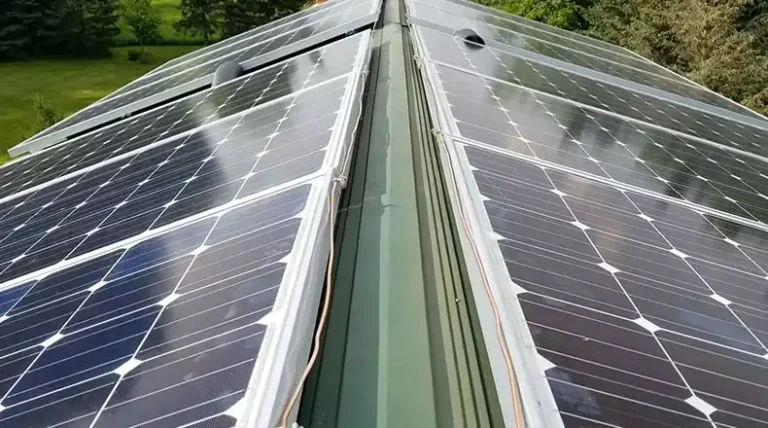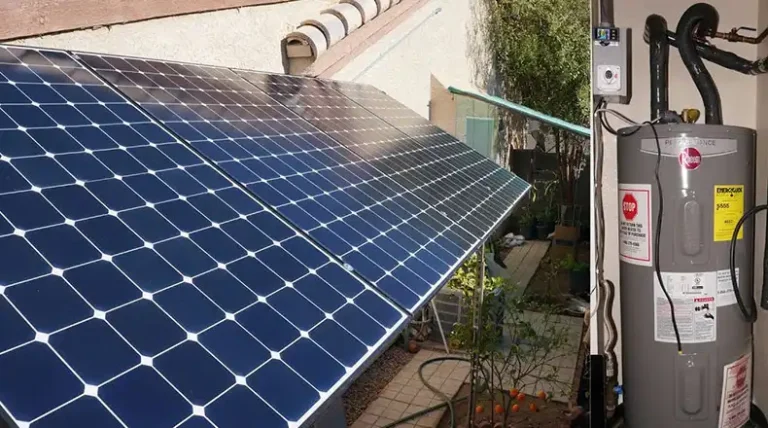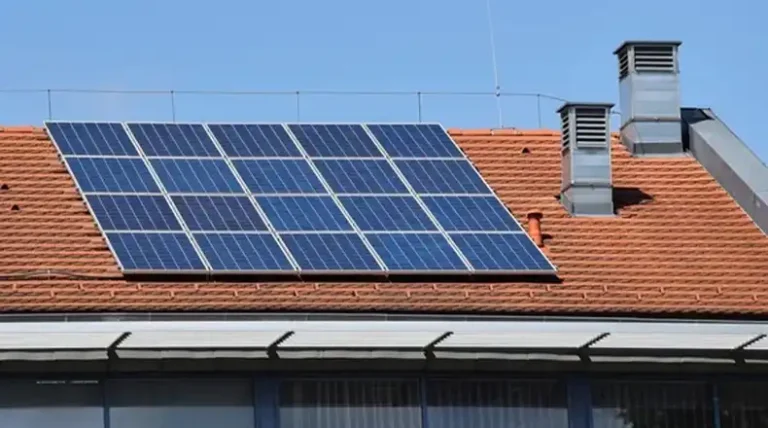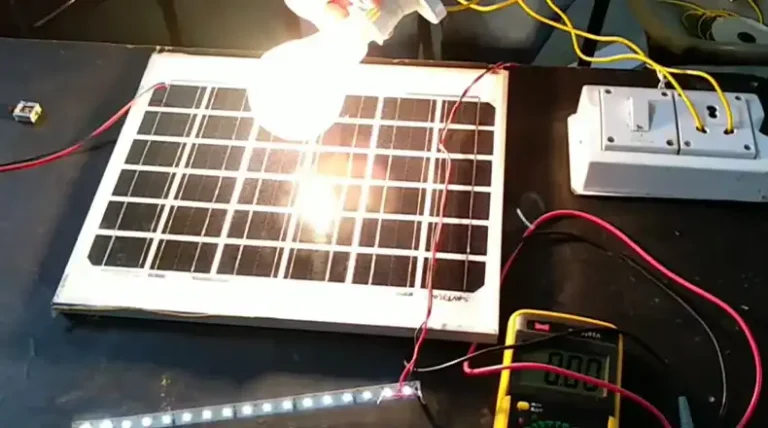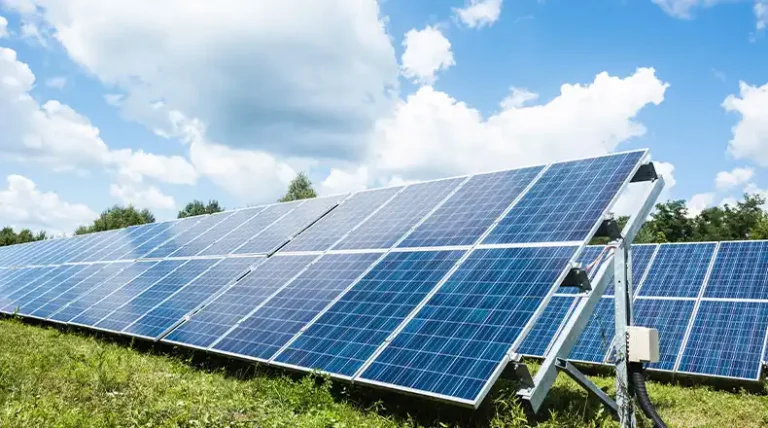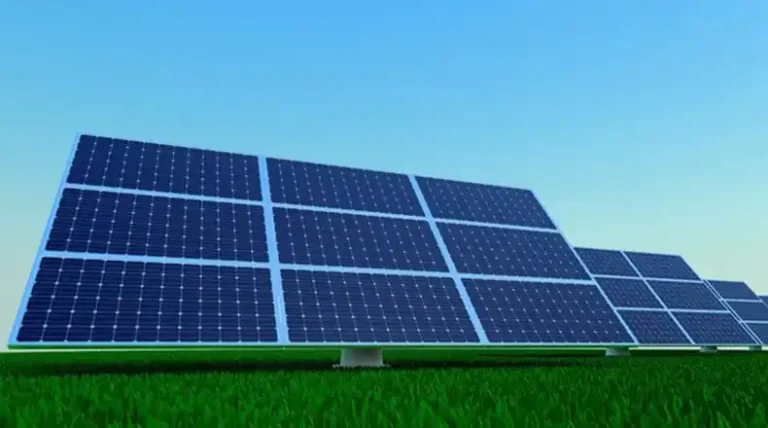100 Watt vs 200 Watt Solar Panels | How I Made the Difference
Solar technology has evolved tremendously over the years, leading to an array of choices for consumers. A common quandary faced by many is selecting between different panel capacities, specifically 100 watt and 200 watt.
Simply put, a 200-watt solar panel will produce twice as much energy under the same conditions as a 100-watt panel. But, the distinction is more profound than just power output.
Let’s unfold the intricate differences and underlying details between these two panel sizes.
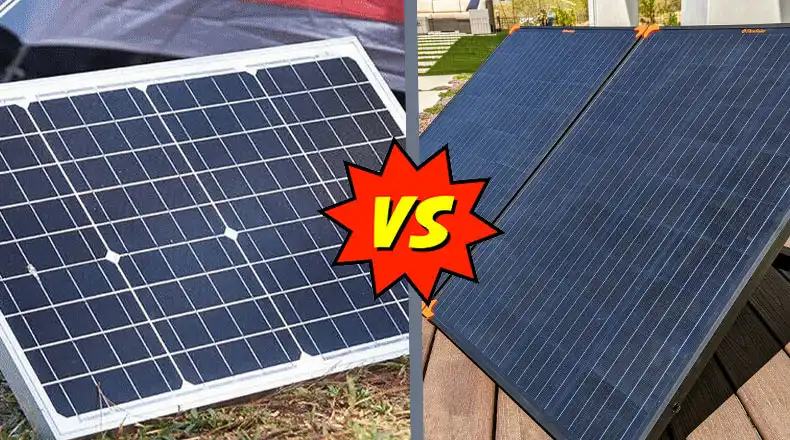
Comparing 100 Watt vs. 200 Watt Solar Panels
Let’s start by comparing the two panels based on their power output.
| Criteria | 100 Watt Solar Panel | 200 Watt Solar Panel |
| Power Output | 100 watts per hour (in optimal conditions) | 200 watts per hour (in optimal conditions) |
| Efficiency Range | 15-18% | 18-20% |
| Physical Dimensions | Compact (great for limited spaces) | Larger (needs more installation space) |
| Weight | Lighter (eases installation) | Heavier |
| Economic Aspects | Lower initial cost but potential higher cumulative costs | Higher initial cost with potentially quicker ROI |
| Suitability | Best for RVs, boats, small cabins | Ideal for homes, larger commercial spaces |
| Lifespan | ~25-30 years (like most quality solar panels) | ~25-30 years |
| Weather Resistance | Comparable to 100-watt panels, dependent on the manufacturer | Comparable to 100-watt panels, dependent on manufacturer |
When comparing 100 watt and 200 watt solar panels, the most immediate difference is their power output. However, other distinctions such as efficiency, size, weight, and cost also come into play.
A 100-watt solar panel is generally compact and lighter, making it versatile for smaller applications or spaces with installation constraints. They come with a lower initial cost, but if you’re planning to expand the system later, the overall expenses can add up.
Let’s learn them in more details below.
1. Understanding Power Output and Efficiency
100 Watt Solar Panel:
- Energy Output: Customarily, this panel is designed for smaller energy tasks. In optimal sunlight conditions, it can produce up to 100 watts per hour.
- Efficiency: The efficiency of a solar panel denotes the proportion of sunlight it can convert into usable energy. For 100-watt panels, the efficiency might range between 15-18%, but this depends on the manufacturing technology.
200 Watt Solar Panel:
- Energy Output: A 200-watt panel will typically yield 200 watts of power per hour in ideal sunlight conditions, making it apt for larger applications.
- Efficiency: These panels might offer slightly better efficiency, often ranging between 18-20%, again contingent on the specific panel technology.
2. Dimensions and Physical Attributes
100 Watt Panel:
- Size: Compact dimensions make it versatile for diverse applications.
- Weight: Being smaller, it’s relatively lightweight, easing the installation and portability process.
200 Watt Panel:
- Size: Generally larger, demanding more rooftop or ground space.
- Weight: Tends to be heavier due to its increased size and the materials used, which might complicate the installation process.
3. Economic Aspects: Price and ROI
100 Watt Panel:
- Cost: The initial investment is lower, but expanding the system later can escalate cumulative costs.
- ROI: Return on investment might be slower if your energy needs exceed the panel’s output.
200 Watt Panel:
- Cost: Initial costs are higher due to enhanced capacity and, potentially, better efficiency.
- ROI: Given its higher power production, it could offer a quicker return, especially for households with significant energy consumption.
4. Real-life Applications and Suitability
100 Watt Panel:
Ideal for nomadic lifestyles, such as RVs, boats, or small off-grid cabins. It’s also a fit for areas with limited energy demands or spaces with restricted installation space.
200 Watt Panel:
A go-to choice for residential setups, commercial spaces, or any location with substantial daily energy needs. The larger size means it’s more apt for stationary installations.
5. THings They Can Run
Solar panels are often chosen based on the power needs of a particular application. To better understand the capacities of 100-watt and 200-watt solar panels, let’s delve into what devices they can feasibly power.
100 Watt Solar Panel:
- Mobile Devices: You can charge multiple smartphones, tablets, and other USB devices.
- Laptops: Suitable for charging a laptop, though the time it takes may vary depending on the laptop’s battery size.
- Small Appliances: Think about small fans, lights, or a radio. However, running these continuously would drain the power quickly.
- Small Fridges: Specifically designed for RVs or campers, these would run for a few hours but not sustainably throughout the day.
200 Watt Solar Panel:
- All devices under 100-watt panel: Naturally, it can handle everything a 100-watt panel can.
- Television: A regular LED TV could run for a few hours.
- Desktop Computers: These might be sustained for a few hours, depending on the computer’s power requirements.
- Larger Appliances: A 200-watt panel could sustainably run bigger fans or more extensive lighting systems for a more extended period compared to the 100-watt panel.
- Refrigeration: While not enough for full-sized household refrigerators, it’s more adept at running larger RV fridges or mini-fridges for more extended periods.
However, one critical thing to remember is that the energy production of a solar panel is heavily dependent on sunlight exposure. Factors like the angle of the sun, shading, and even the cleanliness of the panel can affect its efficiency. It’s also worth noting that you’d rarely use the panel to directly power devices. Instead, it charges a battery, and the devices run off this battery, allowing for more consistent and regulated power usage.
Conclusion
Solar panels, regardless of their wattage, are a stride towards sustainable energy. When choosing between 100 watts and 200 watts, it’s not just about the present needs but forecasting future energy demands. Ensure you balance your current energy requirements, spatial constraints, and budgetary limits.
FAQs on 100 Watt vs. 200 Watt Solar Panels
- Q1: How long do these solar panels typically last?
- A1: Quality solar panels can last 25-30 years or even more, irrespective of their wattage.
- Q2: Do higher-watt panels degrade faster?
- A2: Panel degradation depends on material quality, not necessarily wattage. Most panels degrade at about 0.5% per year.
- Q3: Which panel type is more weather-resistant?
- A3: Both panels should offer similar weather resistance if they come from a reputable manufacturer. It’s always crucial to check panel certifications.
- Q4: How much maintenance do these panels require?
- A4: Generally, solar panels are low maintenance. Regular cleaning and periodic inspections should suffice for both wattages.
- Q5: Can I mix 100-watt and 200-watt panels in one system?
- A5: While possible, it requires a careful configuration to ensure optimal performance and prevent imbalances.

